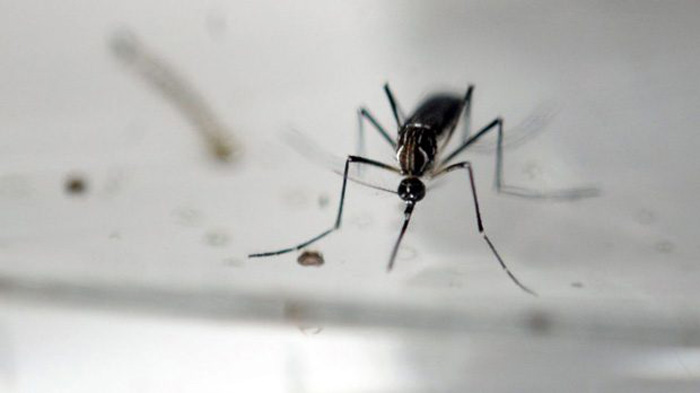The Manitoba government is issuing ministerial orders under the Environment Act to begin spraying for adult mosquitoes with DeltaGard 20EW because of high numbers of adult Culex tarsalis mosquitoes and evidence of mosquito infection with West Nile virus (WNV). The orders will cover the town of Altona and portions of the Rural Municipality (RM) of Rhineland, two areas in the city of Winnipeg as defined below and portions of the rural municipalities of Macdonald and West St. Paul.
Subject to weather and site conditions, adult mosquito control will take place in the areas of, but not limited to:
- The town of Altona plus an approximately three-kilometre extended zone in the RM of Rhineland.
- The portions of the city of Winnipeg and the RM of Macdonald bounded by La Verendrye Road 54NE in the south; Road 8E in the west; Wilkes Avenue in the north; Waverley Street in the east; and Bison Drive, Kenaston Boulevard and Abinojii Mikanah in the southeast. This area includes the Winnipeg neighbourhoods of Bridgwater Lakes, Tuxedo Industrials, Wilkes South, Linden Ridge, Lindenwoods, Whyte Ridge and West Fort Garry Industrial.
- The portions of the city of Winnipeg and the RM of West St. Paul bounded by Pipeline Road in the west; Balgona Road and Murray Avenue in the south; Main Street in the east; and Grassmere Road in the north, with an extension along Provincial Trunk Highway 8 (McPhillips Street) to three kilometres north of the Perimeter Highway. This area includes the Winnipeg neighbourhoods of Riverbend and Rosser-Old Kildonan.
Adult mosquito control occurs in the evening and at night and is expected to begin as early as the evening of Friday, Aug. 9, weather conditions permitting and will not occur if the temperature is expected to drop below 13 C, there is excessive wind or precipitation. The treatment times and area maps will be available at gov.mb.ca.
Public health officials note wet conditions early in the season and recent hotter, drier weather have created ideal conditions for Culex tarsalis mosquitoes that can spread the West Nile virus. The risk for potential human exposure to WNV at this time is high and this will likely continue during the historical high-risk period (mid-July to mid-August). At this time, no locally acquired human cases of WNV have been confirmed in Manitoba.
While Manitobans are encouraged to enjoy warm weather outdoor activities, it is strongly recommended to reduce the risk of mosquito bites and potential exposure to the virus. Key prevention measures include:
- reducing the amount of time spent outdoors during peak mosquito hours between dusk and dawn;
- using an appropriate mosquito repellent;
- wearing light-colored, loose-fitting clothing with long sleeves and pant legs;
- maintaining door and window screens; and
- cleaning and emptying yard items that collect water.
Approved by Health Canada for use in 2017, DeltaGard 20EW is classified as a reduced-risk pesticide. When applied using ultra-low volume methods and as per label directions, DeltaGard 20EW is unlikely to affect human health.
However, individuals can minimize their exposure by taking the following precautions:
- staying indoors during and immediately after spraying;
- closing all doors and windows;
- avoiding trucks while spraying is underway;
- turning off fans and air conditioners or setting them at exhaust;
- removing clothes and children’s toys from outdoor areas;
- covering swimming pool surfaces;
- washing any household items or toys left outside before using them; and
- ensuring homegrown fruits and vegetables are washed before eating.
More information about West Nile virus, including prevention, symptoms, weekly average trap counts of Culex tarsalis mosquitoes, fact sheets, posters and information for municipalities and health-care providers, is available at gov.mb.ca.
Manitobans can also contact Health Links-Info Santé at 204-788-8200 or (toll-free) 1-888-315-9257 for more information.


